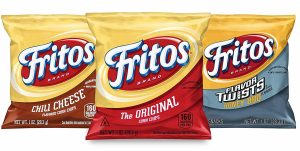Not much news about working people makes the news. We hear about the stock market every day: Dow Jones—up today! Lookin’ good. Oops, Nasdaq—down today! Disappointing result. Oops, S&P-500, up, as investors look past poor economic data. And drilling into our brains despite us.
On the other hand, we have no clue as to what’s going on with people producing the things that underlie those stocks. The Bureau of Labor Statistics kept track of work stoppages involving six workers or more and lasting at least a full shift until 1982, when cuts by the Reagan administration cut funding for labor research and statistics. Today only strikes that involve at least 1,000 workers and last a full shift are recorded. Since nearly 60 percent of all private sector workers are employed by companies with fewer than 1,000 employees this data tells us next to nothing.
 We can’t make up for that, but we can offer a mere glimpse into the current working scene, with a little indication of what’s changed, generally not for the better.
We can’t make up for that, but we can offer a mere glimpse into the current working scene, with a little indication of what’s changed, generally not for the better.
Union membership has neared all-time lows across the US, while income inequality has widened, according to the Economic Policy Institute, a progressive think tank.
A report from the organisation earlier this year found that the annual median income for a full-time worker is $3,250 less than similar work in 1979 amid declining union enrolment.
But some people are so stretched that they actually went on strike.
Frito-Lay. In June, 600 people working in a Frito Lay plant in Topeka, Kansas went on strike calling for better pay, stronger workplace protections, an end to unpredictable overtime schedules, and staff shortages that workers say have endangered their lives on the job and stretched them too thin despite years of warnings. According to long-time employees, “Fifteen, 20 years ago Frito-Lay had a really good reputation” You needed a high school diploma and a work ethic. Slowly that has been whittled away.
The company’s two-year agreement with the union expired in September 2020 and was extended through the end of June, but the union voted against a new contract with a two percent wage increase and 60–hour work week cap. Workers said they had been forced to work seven days a week, including what they called “suicide shifts” and the company called “squeeze shifts”—back-to-back 12-hour shifts with only eight hours off in between.
Since when is a 60-hour work-week something that corporate operatives could offer with a straight face? Workers fought for and won the right to devote 40 hours a week to work so they could raise their families and sleep! Faced with the strike and calls to consumers to stop buying Frito-Lay related snacks (Pepsi, Gatorade, Starbucks, Lipton, Tropicana and Stacy’s products, all under the Frito-Lay and Pepsi umbrella) until the company increased its offer slightly.
The company and the Bakery, Confectionery, Tobacco Workers, and Grain Millers union in late July agreed on a new two-year contract that eliminates the “squeeze shifts” and provides a 4% pay rise, up from the 2% stated in the previous contract offer.
Other strikes: last month, there were more than 74 strikes and labor protests across the US. The longest strike was by nurses at St. Vincent Hospital in Massachusetts and the largest strike was by Volvo workers in Dublin, Virginia. An on-going strike is by a thousand Alabama mineworkers who went to New York to picket in front of the offices of BlackRock, the largest shareholder in Warrior Met Coal.
Maryjo Dolis worked all her life and never made much money.
Be First to Comment